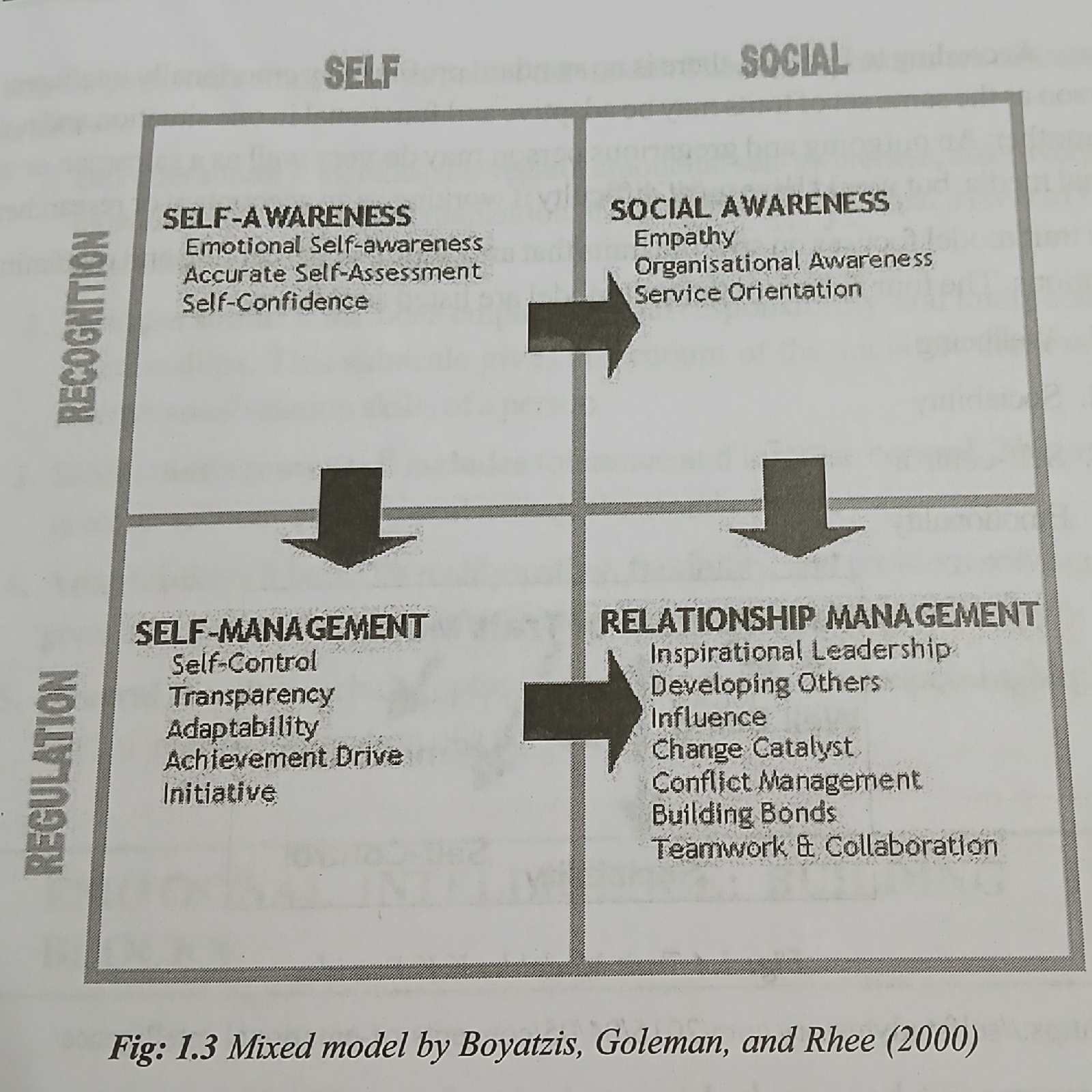Understanding Emotional Intelligence: Unlocking the Power Within
In today’s fast-paced world, being intelligent isn’t just about having a sharp mind — it’s also about understanding our own emotions and those of others. This is where Emotional Intelligence (EI) comes in.
Coined by psychologists Peter Salovey and John D. Mayer and popularized by Daniel Goleman, Emotional Intelligence is the ability to perceive, understand, manage, and use emotions effectively in everyday life. It’s what helps us build better relationships, make wiser decisions, and grow as human beings.
The Pillars of Emotional Intelligence
Daniel Goleman’s framework breaks EI into five main components:
1️⃣ Self-Awareness — Recognizing and understanding your own emotions.
2️⃣ Self-Regulation — Managing or redirecting disruptive emotions and impulses.
3️⃣ Motivation — Being driven to achieve for the sake of achievement.
4️⃣ Empathy — Recognizing, understanding, and considering other people’s feelings.
5️⃣ Social Skills — Building good relationships and managing them effectively.
These pillars form the foundation, but different psychologists have expanded on how to understand EI through different models.
Major Models of Emotional Intelligence
1️⃣ The Ability Model
Proposed by Salovey and Mayer, the Ability Model views EI as a set of mental abilities. It focuses on four key skills:
Perceiving Emotions: Accurately identifying emotions in oneself and others.
Using Emotions: Harnessing emotions to facilitate thinking and problem-solving.
Understanding Emotions: Comprehending emotional language and the signals emotions convey.
Managing Emotions: Regulating emotions in ourselves and others to promote emotional and intellectual growth.
2️⃣ The Mixed Model
Popularized by Daniel Goleman, the Mixed Model combines mental abilities with personality traits and competencies. It includes self-awareness, self-regulation, motivation, empathy, and social skills — blending emotional skills with behavioral traits like persistence, optimism, and adaptability.
3️⃣ The Trait Model
Developed by Konstantinos Petrides, the Trait Model treats EI as a collection of self-perceived emotional abilities and personality traits. It suggests EI is part of our personality and reflects how people perceive their emotional abilities rather than actual abilities. It focuses on traits like assertiveness, emotion perception, self-esteem, and impulsiveness.
4️⃣ The Emotional-Social Intelligence Model
Reuven Bar-On introduced the Emotional-Social Intelligence (ESI) Model. It highlights that EI is not just about processing emotions but also how we use emotions in social contexts. It covers five key areas:
Intrapersonal Skills: Self-regard, emotional self-awareness, assertiveness.
Interpersonal Skills: Empathy, social responsibility.
Adaptability: Problem-solving, reality testing.
Stress Management: Stress tolerance, impulse control.
General Mood: Optimism, happiness.
These models remind us that EI is multi-dimensional — it’s a blend of our abilities, behaviors, and social interactions.
---
Why Emotional Intelligence Matters
From managing conflicts at work to deepening family bonds, EI touches every part of life. People with high EI communicate better, handle stress more effectively, show greater leadership, and tend to be more resilient.
In an age dominated by AI and automation, emotional skills are what make us truly human — they keep us connected and compassionate.
---
How to Develop Your Emotional Intelligence
The good news? Emotional Intelligence isn’t fixed — you can grow it like any other skill:
✨ Practice Self-Reflection: Spend time understanding your emotional triggers. Journaling helps.
✨ Learn to Pause: When you feel strong emotions, pause before you react.
✨ Practice Empathy: Listen more, judge less. Try to see situations from others’ perspectives.
✨ Work on Communication: Express yourself clearly but kindly.
✨ Seek Feedback: Ask trusted friends or mentors how you handle emotions and relationships.
Final Thoughts
Emotional Intelligence is more than a skill — it’s a way of living with awareness, compassion, and purpose.
> “Anyone can be angry — that is easy. But to be angry with the right person, to the right degree, at the right time, for the right purpose, and in the right way — that is not easy.” — Aristotle
May we all grow our Emotional Intelligence and unlock the power within us to build better lives and a kinder world.






Comments
Post a Comment